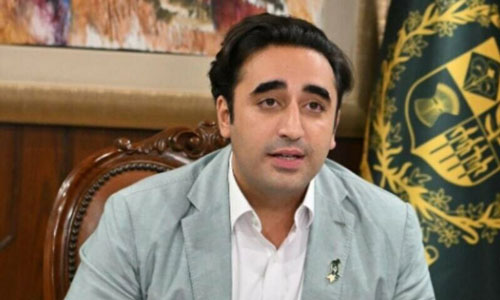Foreign Minister Bilawal Bhutto Zardari wants the world to engage the Taliban, warning of dangerous consequences if Afghanistan’s rulers are again isolated.
In an interview with AFP on a visit to Washington, Bilawal cautioned against creating “parallel governance” after the United States, distrustful of the Taliban, put Afghanistan’s frozen assets in a professional fund in Switzerland.
“We’ve learned from the past that when we wash our hands and turn our backs, we end up creating unintended consequences and more problems for ourselves,” he said on Tuesday.
“I believe that our concerns of an economic collapse, of an exodus of refugees, of a threat of new recruits for organisations such as ISIS-K and others, outweigh concerns that there may be about their financial institutions.”
But he said they needed “political space” on concerns such as women’s rights, which have been sharply curtailed.
“Throughout history, theocratic, autocratic regimes haven’t exactly tended to expand rights at times of economic strife,” he said. “In fact, they tend to hold on to cultural issues and other issues to engage their population.”
Asked about Blinken’s remarks, he said he has had “very productive conversations” with China and said he hoped that assistance after the floods “does not fall prey to great power rivalries and geostrategic issues.”
“I’m sure that the United States would like for us to comment more on China’s internal affairs,” Bhutto said. “But maybe if we start by addressing disputes that are recognised by bodies such as the United Nations as disputes of an international nature, that would be more productive.”
Bilawal recalled that when his Pakistan People’s Party was in power in 2010, it moved to open trade with India, then led by prime minister Manmohan Singh.
“We were willing to take the political risk, stick our necks on the line, and touch the third rail of Pakistani politics — but because we knew that there was a rational, reasonable player on the other end who would perhaps be willing to reciprocate,” Bhutto said.—AFP










